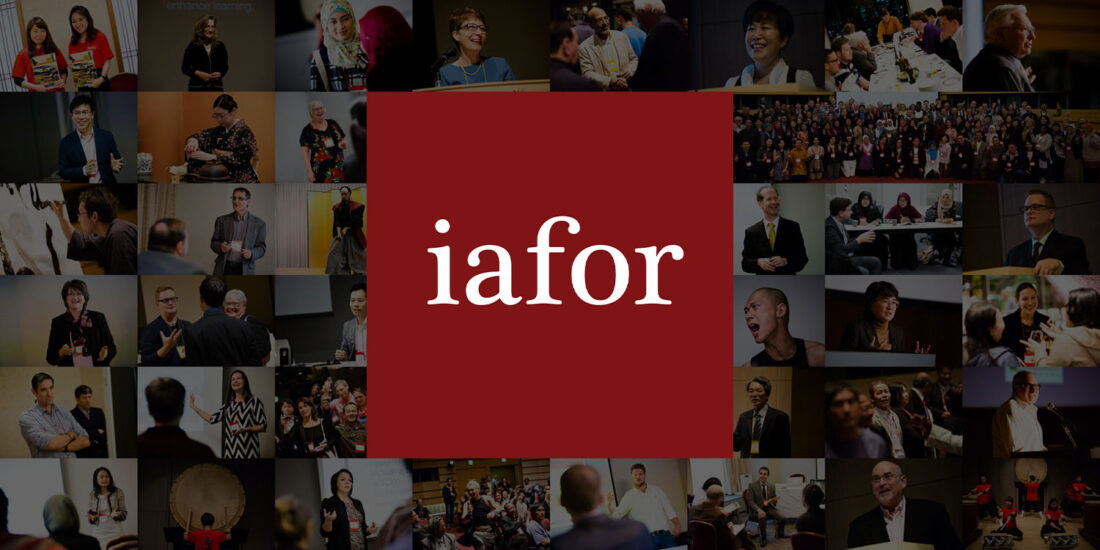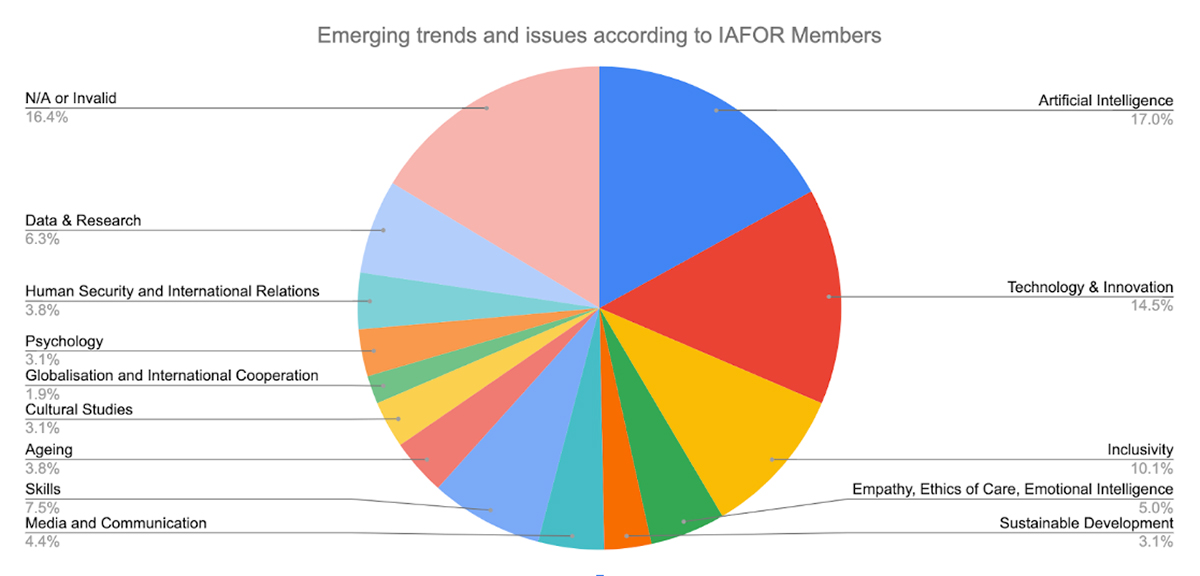On March 29, 2024, IAFOR’s International Academic Board (IAB), chaired by our Provost, Professor Anne Boddington, gathered for a Strategic Planning Summit in Tokyo, Japan, to discuss the Forum’s ongoing as well as upcoming projects. The major topics for the Summit included: (a) IAFOR’s annual performance in terms of scholarships, journals, and conference reports; (b) future themes to be discussed in plenary sessions at conferences, (c) future capacity-building sessions at conferences, (d) IAFOR projects that are on hiatus, in progress, and upcoming; (e) the expansion of our membership offers, and (f) the future of the IAFOR Research Center (IRC).
IAFOR | Strategic Planning Summit 2024 | Friday, March 29, 2024 | Tokyo, Japan
14:00-17:00 JST (Friday, March 29, 2024, 01:00-04:00 AM EDT, 05:00-08:00 AM GMT)
Attended by the International Academic Board (IAB)
The Summit was held in response to results from a questionnaire presented to our members earlier this year. The questionnaire’s aim was to ask members directly what they perceive as potential themes of interest in IAFOR’s future conference programming. We at IAFOR deem this necessary for our progression: there is a need to stray away from top-down agenda-setting and get more in line with what our members are experiencing ‘on the ground’ within the disparate countries in which they operate. The priority for this meeting was for the IAB to consider the results derived from feedback that we have received from extensive consultation with our membership.
The results from the questionnaire regarding emerging key issues and trends, as well as capacity-building demands, were compiled into the Strategic Planning Summit Report, which will serve as a guide for the IAB’s decisions on IAFOR’s future course.
The IAB has identified the following emerging key issues, based on the direct consultation with our membership, and through cross-referencing this feedback with insights from international organisations such as the World Economic Forum (WEF). The identified themes of interest will shape IAFOR’s conference themes in the next five years (2025-2029): (a) Artificial Intelligence, Technology, and Innovation, (b) Inclusivity, Ethics of Care, and Psychology, (c) Leadership (in Education and other fields), and (d) Global Citizenship, Education for Peace, and Human Security. The following figure shows all emerging trends that our membership has identified. For a detailed breakdown within each field, please refer to the Strategic Planning Summit Report:
During the Summit, the Board identified the common theme of Education throughout all strands. Although the questionnaire results presented a variety of themes to be considered, the IAB also cautioned against attempting to add too many themes to the conferences, given that IAFOR has three key foci; International, intercultural, and interdisciplinary. The Board also noted that IAFOR should remain responsive to its diverse audiences and create a place to bring new subjects to Education (e.g. Peace Education, Migration, Leadership in Education) and how these can introduce new perspectives to the ideas of interdisciplinary and/or international.
The Board also recognised the need to publicly offer a Journal Publications report in order to be fully transparent with our audience and keep them up-to-date with the Journals’ performance. As a result, IAFOR has released an official IAFOR Journal Publications Report.
Regarding capacity-building, the IAB acknowledged our membership’s demand for more opportunities and discussed upcoming and new projects to this end. Workshops, symposia, and discussion sessions are planned to be introduced in upcoming conferences, which will allow participants from all education levels to expand their capacities. Among others, the transformation of the Asian Undergraduate Research Symposium (AURS) into the International Undergraduate Research Symposium (IURS) was discussed, expanding the range of applicants to give undergraduate students worldwide the opportunity to expand their academic skills. Another project discussed was the Global Fellowship Programme, a new scholarship opportunity partially funded by the Open Society Foundations (OSF) to foster exchange of knowledge and skills among East Asian early and mid-career academics. For more information on the Board’s decisions, please see the executive summary of the IAB meeting.
Dr Joseph Haldane, the CEO of IAFOR, noted that previously, there had been too much overlap between the IAB and the IAFOR Board of Directors. The reports presented at this meeting as a result of research and feedback initiatives have aided in the Academic Board’s realignment and helped decide overarching academic themes. It was proposed that the IAB should strictly focus on providing academic strategy in the future. This process of realignment is also important to IAFOR’s governance and transparency, and to how it develops an academic voice, recognition, and respect.
The Strategic Planning Summit ensured that IAFOR remains relevant and responsive to its audience while taking ambitious steps toward becoming more influential. IAFOR would like to thank our members for providing their insightful feedback and helping our community redirect its focus on global issues that should urgently be addressed. As an organisation that is dedicated to encouraging interdisciplinary discussion, facilitating intercultural awareness, and promoting international exchange, IAFOR will continue striving to give every voice a platform to be heard.
Attendees
Anne Boddington (Chair), The International Academic Forum (IAFOR), Japan
Grant Black, Chuo University, Japan
Dexter Da Silva, Keisen University, Japan
Joseph Haldane, The International Academic Forum (IAFOR), Japan
Virgil Hawkins, Osaka University, Japan
Donald E. Hall, Binghamton University, Japan
Ljiljana Markovic, European Center for Peace and Development (ECPD), United Nations University for Peace
James W. McNally, University of Michigan and NACDA Program on Aging, United States
Melina Neophytou, The International Academic Forum (IAFOR), Japan
Apipol Sae-Tung, The International Academic Forum (IAFOR), Japan
Monty P. Satiadarma, Tarumanagara University, Indonesia
Donna Zier (Secretary), The International Academic Forum (IAFOR), Japan


